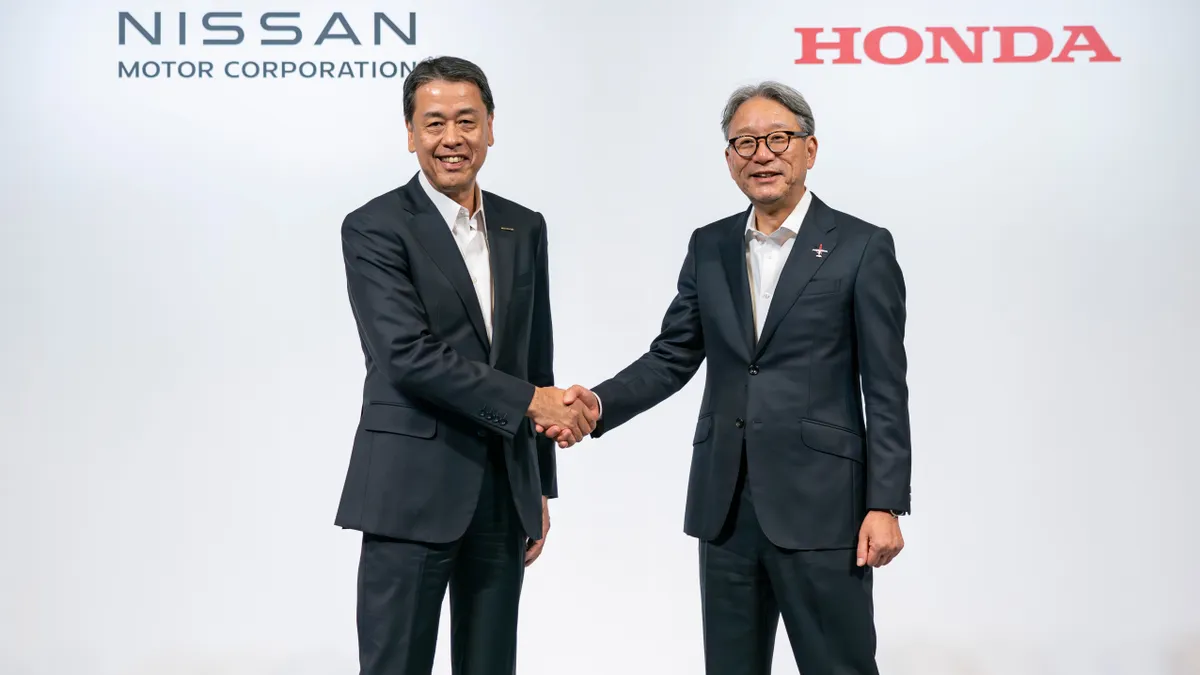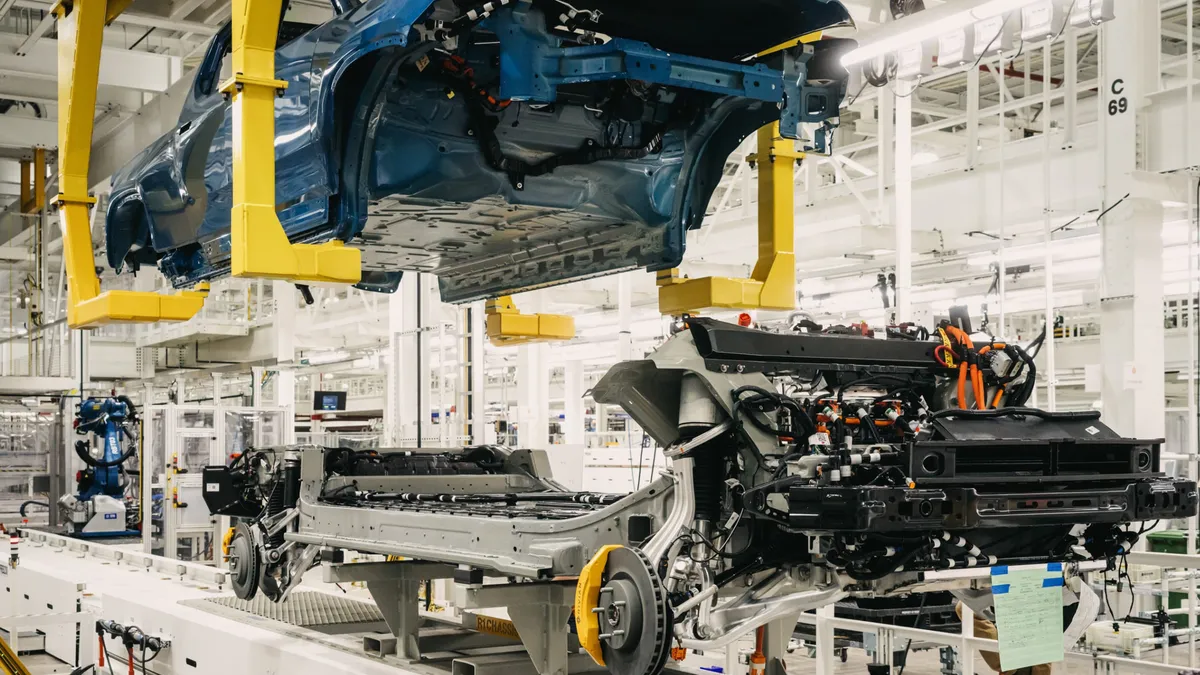Dive Brief:
- Nissan Motor Co. and Honda Motor Co. announced a joint research agreement to develop a platform and technologies for next-generation software-defined vehicles in an Aug. 1 press release.
- Honda and Nissan aim to complete basic research in about a year before considering the possibility of mass producing a vehicle that will be sold globally under both brands.
- The agreement follows the signing of a memorandum of understanding by the two automakers in March to explore ways to jointly develop electric vehicles, powertrains, battery technology, connectivity and automotive software powered by artificial intelligence.
Dive Insight:
Modern vehicles are becoming more like smartphones with software that can be updated over-the-air to make improvements or add new functionality. But for some automakers, adopting these new technologies can be a challenge.
According to a January AlixPartners survey of 180 senior executives in the automotive and technology industries, just 1 in 4 automakers and Tier 1 suppliers are fully prepared to develop software-defined vehicles.
The survey found that a majority of automakers and suppliers are more focused on short-term improvements, such as improving existing features, rather than executing a more long-term strategy for future vehicle development. However, through collaboration, Honda and Nissan will each stand to benefit from jointly developed, shared technologies.
For EV batteries, Nissan and Honda will consider a short-term and medium-term cooperation, including sharing specifications and supply for both high-performance and low-cost batteries that will be used by both automakers. The companies expect cost savings through economies of scale.
As part of these plans, Honda and Nissan will study the supply of lithium-ion batteries from L-H Battery Co., a joint venture between Honda and LG Energy Solution. The batteries would be supplied to Nissan in North America after 2028.
The two automakers also hope to reach an agreement to standardize e-axles for EVs. It also includes sharing motors and power inverters, which are the two core powertrain components of EVs.
The plans to co-develop vehicles could also help Nissan and Honda better compete with EVs from China-based automakers, including low-cost models manufactured by BYD, which is the world’s leading producer of EVs.
The partnership also covers possible collaboration on energy services and EV charging infrastructure in Japan.
In June, EV startup Rivian and Volkswagen announced a similar agreement. Volkswagen is investing $1 billion to establish a joint venture with Rivian to create a next-generation electrical/electronic architecture for EVs that the two companies would share. Each would hold a 50% stake in the venture.














